CAMP Pizza December Edition
Date: Wednesday, December 9th, 2020
Time: 10:00 - 15:00
Virtual Meeting: via
Zoom (login password on invitation flyer).
About
The last but not least CAMPPizza in 2020 will take place on December 9th from 10:00-15:00. It will be held purely virtual over Zoom. We are pleased to announce our main speakers, Dr. Federico Tombari (Google, Zürich), Dr. Pierre Jannin (Medical School of the University of Rennes, France) and Dr. Steven McDonagh (Huawei Technologies R&D, London) and welcome our new members and returners Tianyu Song, Heiko Maier, Yousef Yeganeh and Mahdi Hamad.
The schedule
| From | To | Topic | Speaker  |
|---|
| 10:00 | 10:20 | Welcome | Prof. Dr. Nassir Navab |
| 14:10 | 14:30 | Closing | Prof. Dr. Nassir Navab |
| 13:00 | 13:30 | Newcomers and returners | Mahdi Hamad, Yousef Yeganeh, Heiko Maier, Tianyu Song |
| 13:30 | 14:10 | Learning-based computational photography -- towards robust and data efficient models for real-world imagery | Dr. Steven McDonagh |
| 11:00 | 12:00 | Surgical skill analysis | Dr. Pierre Jannin |
| 10:20 | 11:00 | Some Recent Works in 3D Scene and Object Understanding | Dr. Federico Tombari |
| 12:00 | 13:00 | Lunch Break | |
About the speakers
Dr. Federico Tombari: Some Recent Works in 3D Scene and Object Understanding

|
- Biography: Federico Tombari is a Research Scientist and Manager at Google and a Lecturer (PrivatDozent) at the Technical University of Munich (TUM). He has 12+ years of research experience and 190+ peer-reviewed publications in the field of 3D computer vision and machine learning and their applications to robotics, autonomous driving, healthcare and augmented reality. He got his PhD? in 2009 from the University of Bologna, where he was Assistant Professor from 2013 to 2016. In 2008 and 2009 he was an intern and consultant at Willow Garage, California. Since 2014 he leads a team of PhD? students at TUM on computer vision and deep learning. In 2018-19 he was co-founder and managing director of a Munich-based startup on 3D perception for AR and robotics. He regularly serves as Chair and AE for international conferences and journals (ECCV18, 3DV19, ICMVA19, 3DV20, IROS20, ICRA20, RA-L among others). He was the recipient of two Google Faculty Research Awards (in 2015 and 2018), an Amazon Research Award (in 2017), 2 CVPR Outstanding Reviewer Awards (2017,2018). He has been a research partner of private and academic institutions including Google, Toyota, BMW, Audi, Amazon, Stanford, ETH and JHU. His works have been awarded at conferences and workshops such as 3DIMPVT'11, MICCAI'15, ECCV-R6D'16, AE-CAI'16, ISMAR '17.
|
Dr. Pierre Jannin: Surgical skill analysis
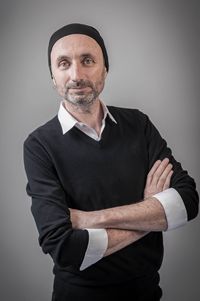
|
- Biography: Pierre Jannin is a INSERM Research Director at the Medical School of the University of Rennes (France). He is the head of the MediCIS research group from both UMR 1099 LTSI, Inserm research institute and University of Rennes. He was awarded the PhD? degree from the University of Rennes in 1988 on multimodal 3D imaging in neurosurgery and the “Habilitation” (HDR) from the University of Rennes in 2005 on information and knowledge assisted neurosurgery. He has more than 30 year experience in designing and developing computer assisted surgery systems. His research topics include surgical data science, surgical robotics, image-guided surgery, augmented and virtual reality, modeling of surgical procedures and processes, study of surgical expertize, surgical training and validation methodology in medical image processing. He authored or co authored more than 90 peer-reviewed international journal papers. He was the President of the International Society of Computer Aided Surgery (ISCAS) from 2014 to 2018 and the General Secretary from 2004 to 2014. He was board member of the MICCAI society from 2014 to 2018. He is an elected MICCAI Fellow since 2018. He is senior member of the SPIE society. He is the Editor in Chief of Computer Assisted Surgery journal (Taylor&Francis). He is Deputy Editor for the International Journal of Computer Assisted Radiology and Surgery (Springer). He has acted as associate editor and reviewer for several journals (e.g., IEEE TMI, MedIA?, IJCARS, Neuroimage, Yearbook of Medical Informatics). He is member of several Organizing and Program Committees of international conferences, such as MICCAI, CARS, SPIE Medical Imaging, and MMVR. He was President of CARS 2019 conference and Program Co-Chair of MICCAI 2017. He is co-founder of IPCAI conferences and was Co-General Chair from 2010 to 2016.
|
Dr. Steven McDonagh: Learning-based computational photography -- towards robust and data efficient models for real-world imagery
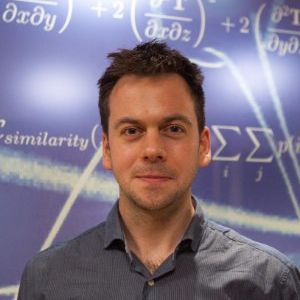
|
- Abstract: Contemporary computational photography leverages both learning and computation towards highly effective imaging systems. The popularity of data-driven methods in the computational photography community is increasing and, in combination with computer vision tasks, improving camera capabilities both by introducing features previously unobtainable through film and reducing the cost and size of camera elements. We will introduce some recent learning-based work from our group towards improving key stages of the digital camera pipeline. We show performance improvements for the ill-posed color constancy problem and also the important task of depth estimation. Further, we note that resulting models typically suffer from domain gaps and fail to generalise across imaging devices. Towards addressing this issue, we will discuss some recent camera-agnostic, data-frugal and cross-modal ideas and learning strategies.
- Biography: Steven McDonagh is currently a senior research scientist with Huawei Technologies R&D, based in London. He has previously held both academic and industrial post-doctoral positions with Imperial College London and Disney Research, Zurich where he has worked on topics ranging from medical image analysis to cinematic facial performance-capture. He is currently interested in a range of computational photography problems and is tackling these using learning-based tools including multi-task, meta-learning and through the use of multi-modal information.
|
Newcomers and returners
M.Sc. Tianyu Song

|
- Biography: Tianyu Song received the BSc degree in Theoretical and Applied Mechanics from Sun Yat-sen University (China) and BSc degree in Mechanical Engineering from Purdue University (USA) in 2017. He studied Robotics at Johns Hopkins University (USA), where he joined CAMP at JHU and conducted multiple medical augmented reality research, and earned his MSE degree in 2019. After graduation, he worked at the Applied Research team at Verb Surgical/ Johnson & Johnson (USA) for a year. Now he is working towards the PhD? degree starting October 2020 at CAMP, Technical University of Munich. His current interests include augmented reality and computer aided surgery.
|
M.Sc. Heiko Maier
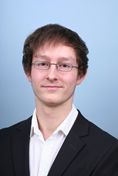
|
- Biography: Heiko Maier did his Bachelor’s in Biomedical Engineering at the University of Applied Sciences in Mannheim. Following this, he pursued a Master’s in Signal Processing (Electrical Engineering and Information Technology) at KIT in 2020. As a PhD? at CAMP, he will be investigating methods for non-fluoroscopic catheter localization in medical interventions. In his spare time, he enjoys playing the guitar; an evening of DnD? (currently online) or a few hours of bouldering (currently not).
|
M.Sc. Mahdi Hamad
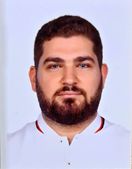
|
- Biography: Mahdi Hamad received his bachelor’s degree in Computer and Communication Engineering at Notre Dame University in Lebanon and master’s degree in Biomedical Computing at Technical University Munich. Currently, he is working towards his PhD? degree jointly between Siemens and the IFL lab on the topics of shape completion, 3D reconstruction and SLAM.
|
M.Sc. Yousef Yeganeh
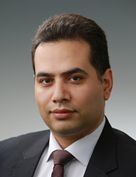
|
- Biography: Yousef Yeganeh has received his first degrees from KNToosi University of Technology in Tehran, Iran in Computer Engineering, and he has been active in R&D section of a research group in KNTU in the field of electronics and HIL. He has acquired a M.Sc degree from TUM, and has been involved in the CAMP from 2018 from his guided research on interpretability of distilled models, and later with his M.Sc thesis on Federated Learning.
|








